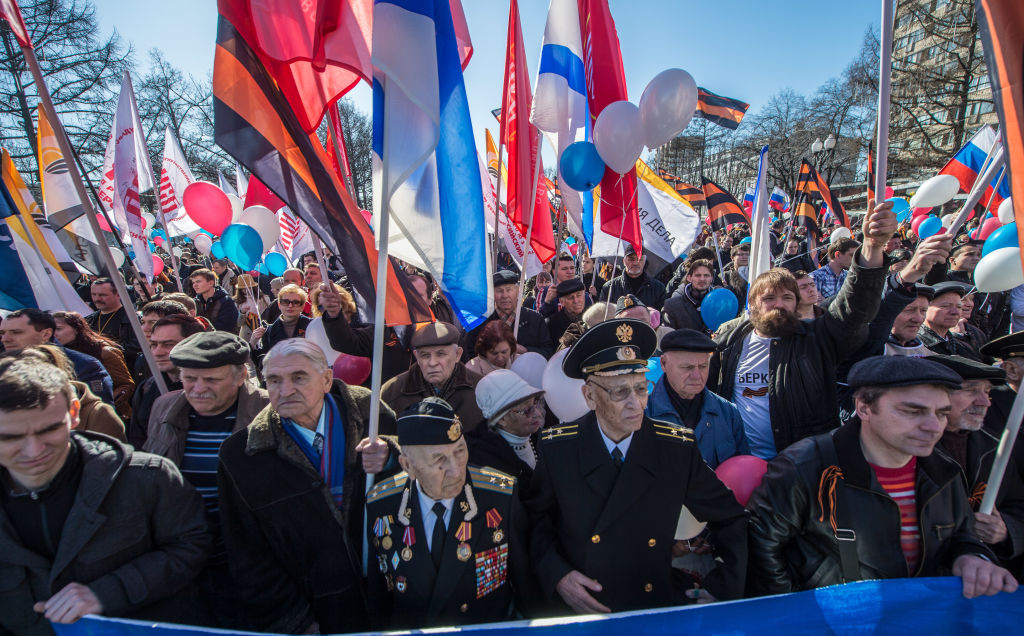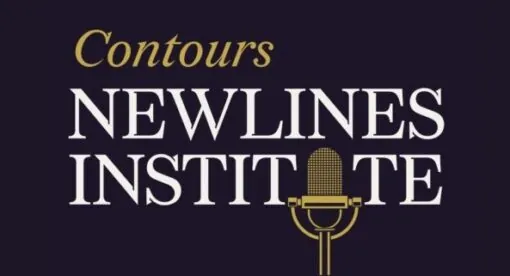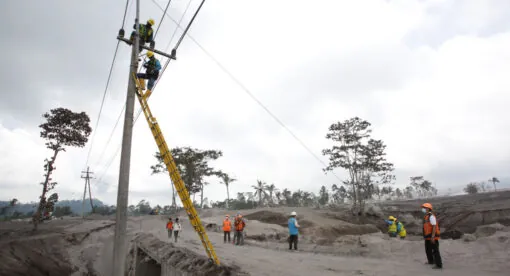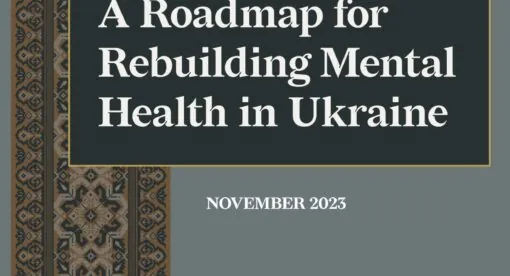Russia’s approach to its invasion of Ukraine is rooted in a prescriptive version of its history and identity based on an “Imagined Community.” Ukraine’s efforts in peace talks are proving futile because of Russia’s view of its own past, the atrocities it has already committed, and its unrealistic expectations for negotiations. Russian decision-making during these negotiations will be heavily influenced by President Vladimir Putin’s concept of this war, especially his rhetoric around the supposed threat of Nazism and its ties to mythmaking around World War II – which Russia officially calls the “Great Patriotic War.” Russia’s view of history through this lens will likely delay the possibility of peace in Ukraine.
In 1983, Benedict Anderson defined nation-ness and nationalism as a cultural construction, and a nation as an “imagined political community” in the sense that a citizen can have a prescriptive image of their community – its unique national emblems, history, and cultural roots – without knowing other members of the same community. Russia, like many other countries, has its own national emblems, religious affiliation, language, invented traditions. Then there are myths that are so embedded in Russian identity that they have become reality. Some in Russia readily embrace this constructed reality; fewer reject it because of the prospect of jail time and fines. Others are simply passive to this content, but even their passivity contributes to its longevity and maintenance. When Russian actions challenge this narrative – for example, the massacres in Bucha – the state immediately works to cast doubts.
There is enough evidence, not only in questionable state opinion polls but also on social media sites like Telegram and VKontakte, to show that some of these discourses have found a prominent place in society. Streamlined stories on historical topics and contemporary security issues that perpetuate state loyalty, sacrifice, and heroism – such as the Great Patriotic War – confront Russians in education, politics, cultural centers, and media.
The Great Patriotic War Myth
Russian elites often draw upon memory of the Great Patriotic War to carry out contemporary political aims, a strategy that has intensified under Putin. Since 2014, Russia has been working on the creation of a single-concept textbook on Great Patriotic War history in schools to rid Russia’s education system of multiple interpretations. The Great Patriotic War memory is also carried through to youth military-patriotic groups like Yunarmiya, established in 2016 by Defense Minister Sergei Shoigu, a youth army that has engaged in patriotic activities like patriotic graffiti and has played a key role in the war against Ukraine, particularly in the resettlement of “evacuees” from Donetsk and Lugansk. Then in 2020, Russia’s revised constitution included a clause on “Historical truth,” which emphasized the importance of “protecting the ‘historical truth’ of the Great Patriotic War (1941-1945)” and asked for Russian society to challenge those who worked to “falsify” and “diminish” the feats of those who fought.
In recent weeks, the patriotic education system has ramped up. One of Putin’s assistants, Vladimir Medinsky, suggested that schools now sing Russia’s national anthem every day, stating, “I think we need mobilization … we need to mobilize all the possibilities in the field of historical education.” Meanwhile, the chairman of the Russian Fund of Culture, Nikita Milhalkov, pushed the responsibility to educate onto the child’s parents, saying, “Patriotism is something that is absorbed with mother’s milk. I am quite convinced that the youth’s consciousness should be saturated from a young [age].” Russians are also being inundated by state-filtered information on the Great Patriotic war in the cultural sector and the news media. Krasnaia Zvesda, the newspaper of Russia’s Ministry of Defense, has a link on its website to “History pages.”
One of the most intense aspects of this pervasive Great Patriotic War narrative, however, is that every action of contemporary Russians is seen in the context of their ancestors’ sacrifice in wartime. Russians are consistently reminded that the current threats of Nazism and genocide in Ukraine are evils that their great-grandfathers sacrificed themselves for. The First Deputy Head of Russia’s Presidential Administration, Sergey Kiriyenko, recently said, “Ten years ago, even five years ago, it was hard to believe that Nazism and fascism could return to our land. After all the tragedies of the Great Patriotic War, after tens of millions of victims, after the international Nuremberg Tribunal. Nevertheless, today it is a reality.”
Mainstream belief in the notion of a vulnerable Russian state surrounded by hostile neighbors is normal. Rhetoric around genocide and Nazism fit into this existing framework that promotes images of a ruined and struggling Russian state that has risen from the ashes to gain eventual victory over an adversity. The efficiency and longevity of these narratives have resulted in society’s mobilization and readiness to support Russia’s “special military operation” in Ukraine. Only deep and long-term change will be able to transform Russia’s security behaviors.
Changing an Imagined Community
Anderson tells us that an imagined community is imagined because it is malleable to change. Putin’s Russia is certainly imagined, but it also is fixed because the discursive structures that underpin Russia’s identity are too strong. The contemporary issues that Russians face, or are confronted with, fit too easily into the discursive frameworks that have been built up over decades of careful cultivation. This poses some issues for peace-making efforts between Russia and Ukraine. Putin has justified the invasion as preventing supposed genocide by neo-Nazi groups in Ukraine. At the same time, Putin has long legitimized his interests in Ukraine as based on the Historical Unity of Russians and Ukrainians, noting in a July 2021 essay, “Together we have always been and will be many times stronger and more successful. For we are one people.” These actions have convinced much of the world that his goals in Ukraine do not end in Donetsk and Luhansk. He is now ensuring his vision of Russian history is shared among Russian society.
The Russian people are not a lost cause. Everyone outside of Russia should make efforts to contest the one-dimensional discourses that Russian people are being confronted with. We can challenge those within the region about the increasing role of censorship and of banning opposition outlets, asking why this is necessary if the Kremlin’s aims are truthful. This also can be done by exposing connections in the region to multiple news sources and challenging the one-dimensional viewpoint on the war – this should be a collective responsibility for all those with access to these various perspectives. Some people in Russia are already doing this, hacking news outlets and placing anti-war statements in supermarket price tags. In addition, further pressure needs to be put on Putin’s regime in more public condemnation and sanctions in the case of switching from Russian oil to more sustainable energy. These pressures may reinforce Russia’s perceptions of a hostile world, but they may also do the opposite and push Russians to reconsider their government’s aggression.
Change will only come with a persistent approach that casts doubts over the streamlined discourses of the Kremlin, and even if significant political changes occur in Russia, the situation is far from solved. Grassroots groups in Russia, outside of politics, will need to spearhead a campaign to educate Russians about the limits of Putin’s historical mythmaking, with the guidance of international educational organizations. Even then, this will take time because the existing discourses permeate Russia’s society so deeply. Unfortunately, this is not propaganda, indoctrination, or patriotic education as we have known it; this is something completely unique and therefore hard to deconstruct.
Dr Allyson Edwards is a Teaching Fellow at the University of Warwick. Edwards completed her PhD in 2021, focusing on Russia militarism in the 1990s. She is an expert in memory diplomacy, patriotic education systems, and historical mythmaking. You can follow her on Twitter at @AllysonEdwards1.
The views expressed in this article are those of the author and not an official policy or position of the New Lines Institute.







